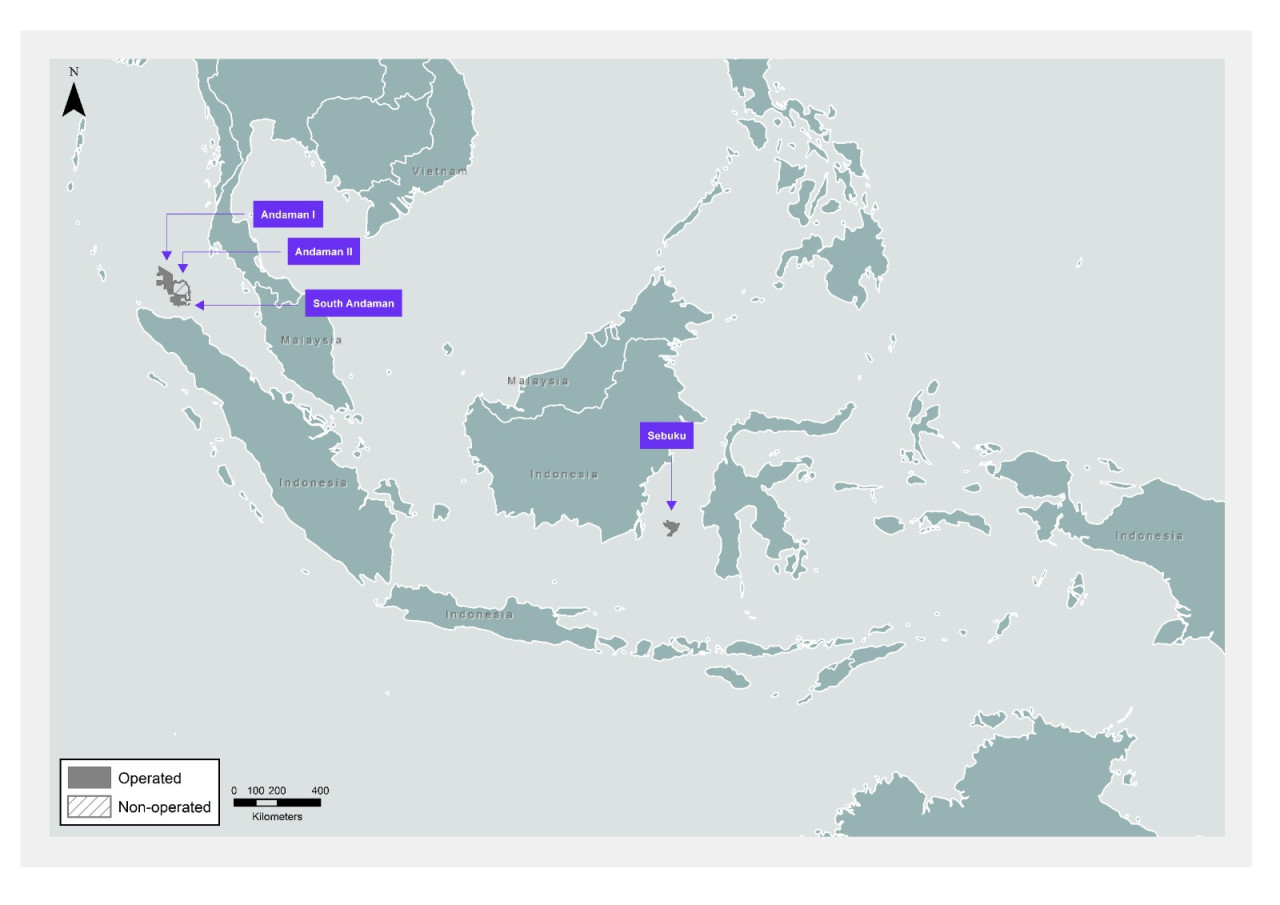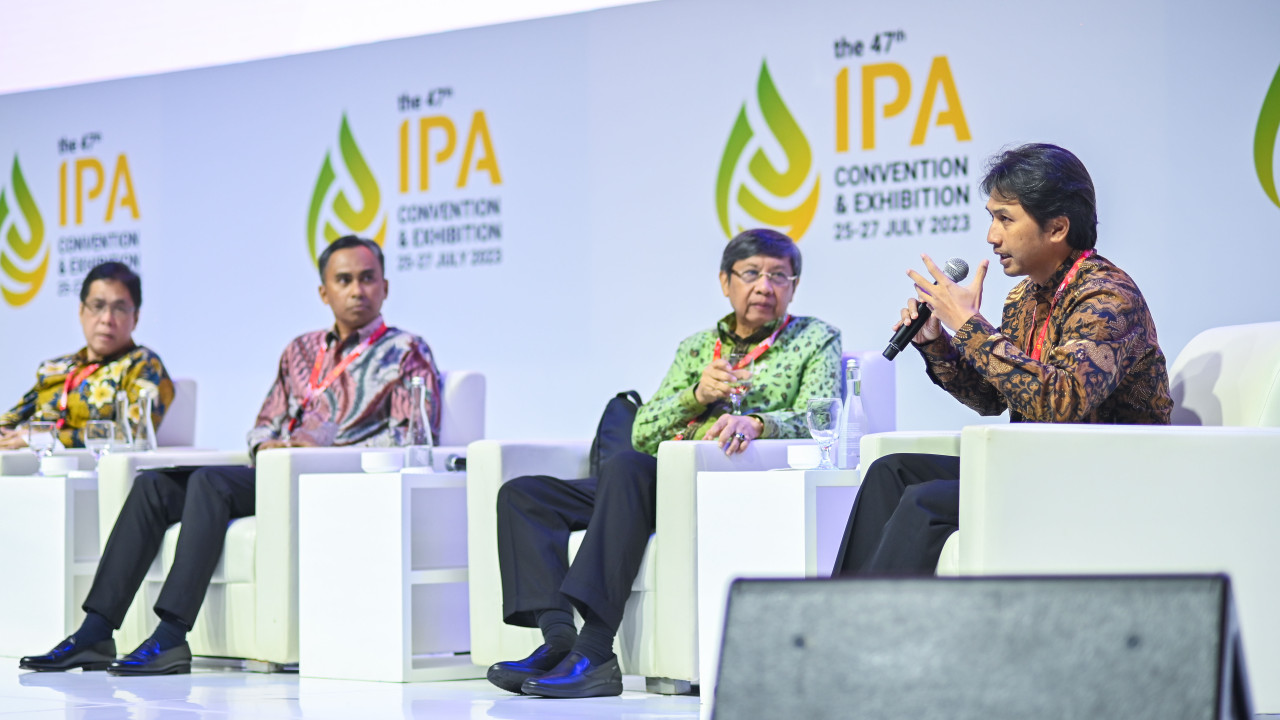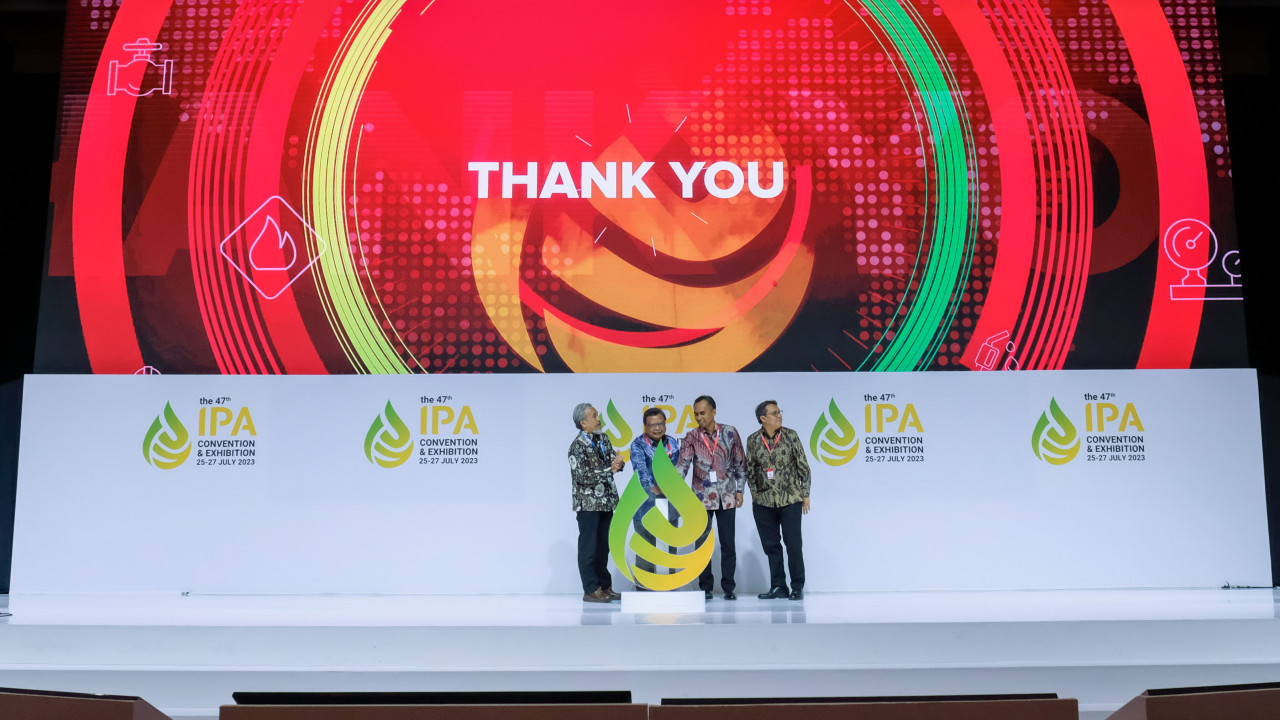IPA CONVEX PLENARY SESSIONS - Beyond Revenues: The Indispensable Contribution of the Upstream Industry”
The 2nd session was opened by Mariatul Aini from the Ministry of Finance, who stressed that if the country wants to attract investment, infrastructure is key and the Ministry is making efforts to fund and develop infrastructure around the country, particularly in remote areas, so that the oil and gas industry can utilize these facilities in the search for more reserves. The Ministry is also pushing to simplify bureaucracy and regulations to encourage investment. She also stressed that the economic indicators in the country are good at present, with inflation at 3-4% per annum and the ease of business index showing Indonesia jumping 15 places to 91 out of 170 countries worldwide.
She added that the Ministry and government in general view the industry now as an enabler of economic growth rather than a contributor to state revenue, but also recognized the significant multiplier effect of the industry on the regions and other sectors. The government view is that the Gross Split mechanism and the existing tax exemptions will provide the incentives required to re-attract investment. She was, however, open to discussing more ways in which the government can assist.
In response, the panelists noted that other countries are showing increasing investment, so why is this not happening in Indonesia? Government does not appear to be listening to industry and reform is slow. The need for fiscal incentives was highlighted as key to re-attracting investment. The Chairman of APINDO added that industry must present a clear business case to government and prepare a strategy for the period of uncertainty that will undoubtedly follow. He also stressed that if the upstream oil and gas sector reduces or stops investing, then the downstream sector will also be negatively impacted.
The Vice Regent from Kalimantan recognized the huge impact that the industry has had on his region for the past 50+ years. Noting the Mahakam transition, he urged this to be done carefully and with consideration for the needs of the region and to ensure that the benefits will continue, however he added that he was uncertain if the government has addressed this.
The Boston Consulting provided data showing that the industry has an estimated economic impact of USD 120 Billion from 2018 to 2025, with 40 Billion of direct investment and 80 Billion of indirect benefits. At current production levels, and taking into account growing demand, imports will account for 50% of total energy demand by 2025. Employment indicators are that 280K people are employed in the sector and there is a risk that 50000 jobs may be reduced if the sector is not revitalized. The key message was that a more collaborative approach is needed to find solutions to ensure that the multiplier effect continues.
Dan Wieczynski, on behalf of the IPA Board of Director, said that the IPA message is clear – there are many positive aspects of government action, including economic growth rates and other government initiatives taken by the Ministry of Finance, etc., but the facts are that the industry is in crisis, there is no exploration activity, no projects and that decisive leadership is needed to reverse this situation. Global companies are still investing in Asia-Pacific amidst the current oil price, but not many are in Indonesia in recent years. These companies certainly would like to invest in Indonesia, but the fiscals and the economics need to be improved.
Other countries are attracting capital and Indonesia needs to benchmark against these countries and introduce fiscal incentives and terms that will re-attract investment. He emphasized that the IPA is here to partner with government to address these issues and find solutions as it was critical that Indonesia develop its own energy resources rather than rely on increasing imports.



